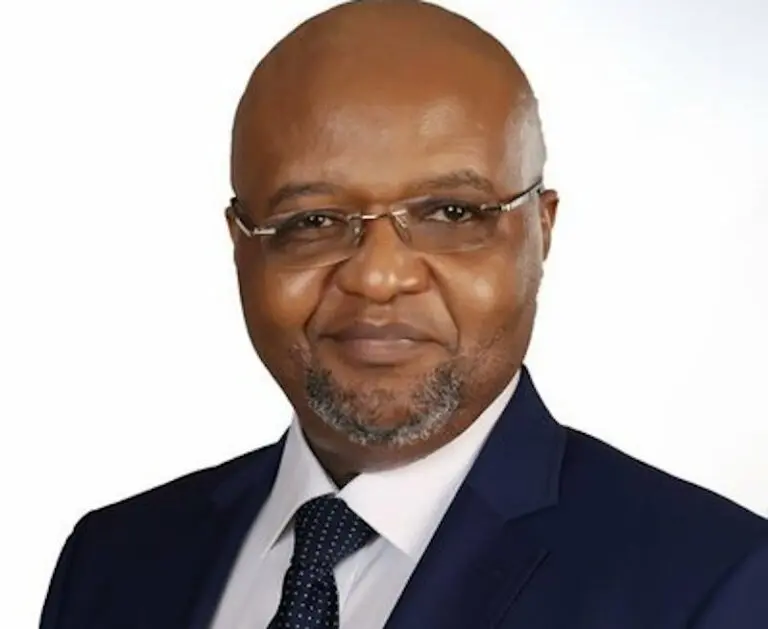Ikechukwu Doubts Viability of Opposition Against Tinubu in 2027

In a compelling appearance on Arise News, Prof. Okey Ikechukwu, Executive Director of Development Specs Academy, provided a candid assessment of the growing political dynamics in Nigeria ahead of the 2027 general elections.
Speaking bluntly, Prof. Ikechukwu expressed strong skepticism about the viability of the opposition coalition, which is being championed by a mix of disgruntled political figures across parties.
According to him, the coalition appears more as a fragile alignment of personal ambitions than a unified front with shared ideology or purpose.
“You cannot have a coalition of people who have had disturbing relationships with each other, ideological contradictions, and are all angling for the same top seat,” he said.
He pointed out that many of the coalition leaders—such as Nasir El-Rufai, Atiku Abubakar, Rotimi Amaechi, and David Mark—come from diverse ideological and religious backgrounds, with no clear sign of consensus or compromise. “Picture a room where all of them are sitting together to form a government.
What will the conversation be about? Likely positions, not policy,” he remarked.
Beyond Abuja and Lagos press conferences, Prof. Ikechukwu observed, there is no tangible groundwork being done at state or grassroots levels to build a strategic movement.
“They want to form a coalition at the top and use it to rule Nigeria. That’s the problem,” he warned, likening their current approach to “bringing buckets to fix a leaking roof instead of replacing the roof itself.”
Prof. Ikechukwu neither confirmed nor dismissed the rumored speculation of the defection of the Enugu State Governor Peter Mbah to the APC(The ruling party). Instead, he highlighted a more structural issue within political parties themselves.
“Is ideological conversion possible? Yes. Do defections happen? Yes. Do we like it? No. But the real question is—why are people leaving your party?” he asked. He emphasized that parties need to self-reflect on their internal weaknesses if they hope to prevent such exits.
“If you don’t want someone to defect, give them a reason not to,” he said, calling for internal reform and accountability.
Prof. Ikechukwu dedicated a significant portion of his commentary to dissect the strengths and shortcomings of Peter Obi and the Obidient Movement, particularly in the Southeast and urban centers like Lagos.
While acknowledging Obi’s nationwide popularity and the emotional pull of the Obidient movement, Ikechukwu warned that electoral success cannot be achieved solely through online enthusiasm or moral high ground.
“There are no polling booths on Facebook or Instagram,” he said. “Polling booths are physical. They require agents, structure, funding, and strategic organization.”
He also criticized the Labour Party and its affiliates for clinging to the slogan “we no dey give shishi” without distinguishing between corruption and necessary logistical expenses.
“If you send me to the market to buy groundnut and don’t give me transport fare, I might take a ride from your political opponent. Then what?” he quipped, warning that over-reliance on volunteerism without support could backfire.
Prof. Ikechukwu cautioned that the Obidient movement risks stagnation unless it transforms from an emotionally charged support base into a well-organized political structure with ideological clarity, grassroots presence, and institutional capacity.
“They are wasting the potential and possibilities of that movement,” he lamented. “The conversation must migrate from personalities to policies, from noise to structure.”
In conclusion, Prof. Ikechukwu offered a sobering reminder that defeating an incumbent like President Bola Tinubu who he described as a political tactician capable of outmaneuvering the entire field requires more than outrage and idealism.
“Tinubu demarketed the PDP and Jonathan without data and won. He defied expectations at the primaries and shocked many in the general elections. If you’re going to fight such a man, prepare for a real fight. Don’t come with wishful thinking and call it strategy,” he advised.
His final warning was clear, “If the opposition does not recalibrate and organize, they will participate in 2027 but they will not contest.”






